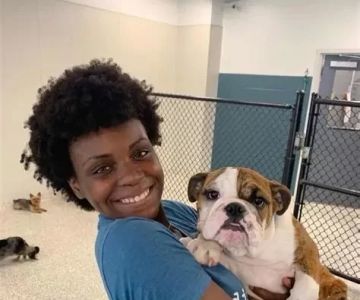Understanding Long-Term Pet Anxiety
Just like humans, pets can experience anxiety, and in some cases, it can become a long-term issue. This condition can manifest in various ways, such as excessive barking, destructive behavior, or changes in eating and sleeping patterns. Understanding the root cause of your pet's anxiety is crucial in addressing the issue effectively.
Pet anxiety can stem from numerous factors, including traumatic experiences, environmental changes, lack of socialization, or even genetics. Recognizing the signs of anxiety in your pet is the first step in offering them relief. Common signs include:
- Excessive barking or meowing
- Destructive chewing or scratching
- Loss of appetite or overeating
- Increased aggression or fearfulness
- Changes in body posture or behavior
Identifying the Causes of Your Pet's Anxiety
Before jumping to conclusions about how to manage your pet's anxiety, it's important to identify the underlying causes. Anxiety in pets can often be triggered by stressors that are difficult for them to express, such as:
1. Traumatic Experiences
Past traumatic events, such as being abandoned, abused, or involved in an accident, can lead to long-term anxiety in pets. These experiences can cause them to become fearful or overly protective. If your pet has suffered trauma, professional therapy may be needed to help them process the experience.
2. Environmental Changes
Moving to a new home, changes in routine, or even the arrival of a new family member (human or pet) can unsettle your pet. Pets thrive on routine and familiarity, and disruptions can cause anxiety. In these situations, giving your pet time to adjust and offering additional comfort can be crucial.
3. Lack of Socialization
Puppies and kittens need to be exposed to different environments, people, and other animals to develop healthy social skills. If they are not properly socialized during their critical developmental years, they may become anxious and fearful of new experiences or people. Socialization should be done gradually and positively.
4. Medical Conditions
Sometimes, anxiety can be triggered by underlying health problems. Pain, illness, or even hormonal imbalances can make your pet more anxious. It's important to rule out medical issues with the help of a veterinarian before pursuing behavioral treatments.
Effective Treatments for Long-Term Pet Anxiety
Once you've identified the cause of your pet's anxiety, it's time to explore the available treatment options. Managing long-term anxiety requires patience, consistency, and sometimes a combination of methods. Below are several strategies that have proven effective in reducing anxiety in pets:
1. Creating a Safe Space
Providing your pet with a safe, quiet space where they can retreat when they feel overwhelmed is essential. This space can be a crate, a bed in a calm room, or any area where your pet feels secure. The key is to ensure that this space is free from noise and distractions, offering them a place to relax.
2. Exercise and Mental Stimulation
Physical exercise and mental stimulation are excellent ways to alleviate anxiety. Regular walks, playtime, and interactive toys can help release excess energy and reduce stress. Engaging your pet in activities that challenge their mind, such as puzzle toys or obedience training, can also keep anxiety at bay.
3. Calming Aids and Supplements
There are many calming aids available on the market, such as pheromone diffusers, calming collars, and supplements designed to help pets relax. Natural remedies like CBD oil for pets or herbal supplements can be effective in some cases. Always consult with your veterinarian before using any supplements to ensure they are safe and appropriate for your pet.
4. Behavioral Training
Behavioral modification training can help reduce anxiety by teaching your pet to cope with stressful situations. Desensitization and counter-conditioning techniques, where you gradually expose your pet to the anxiety-inducing situation in a controlled way, can be effective. A professional dog trainer or animal behaviorist can guide you through the process.
5. Medication
In more severe cases of anxiety, medication may be necessary. Anti-anxiety medications prescribed by a veterinarian can help reduce symptoms and make behavioral therapy more effective. Medication should be considered as a last resort and used in conjunction with other treatments.
Real-Life Example: Helping a Rescue Dog Overcome Anxiety
Take the case of Max, a rescue dog who came from an abusive background. Max exhibited signs of severe anxiety, including constant pacing, trembling, and destructive chewing. His new owner, Sarah, worked with a veterinarian and a dog trainer to develop a treatment plan that included behavioral training, calming aids, and medication. Over time, Max became more comfortable in his new home, and his anxiety began to subside. Today, Max enjoys a calmer, happier life, and Sarah credits her dedication and patience for Max's transformation.
When to Seek Professional Help
While there are many at-home remedies for managing pet anxiety, some pets may require professional help. If your pet’s anxiety is affecting their quality of life or causing harm, it’s time to consult with a veterinarian or an animal behaviorist. At Hidden Brook Veterinary, we specialize in diagnosing and treating anxiety in pets. Our team of experts can provide you with personalized advice and treatment options to ensure your pet’s well-being.
Whether your pet needs a behavioral plan, medication, or additional support, we’re here to help. Visit our website to learn more about how we can assist you in addressing your pet’s anxiety.












